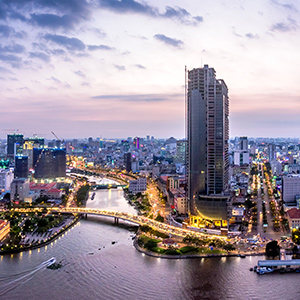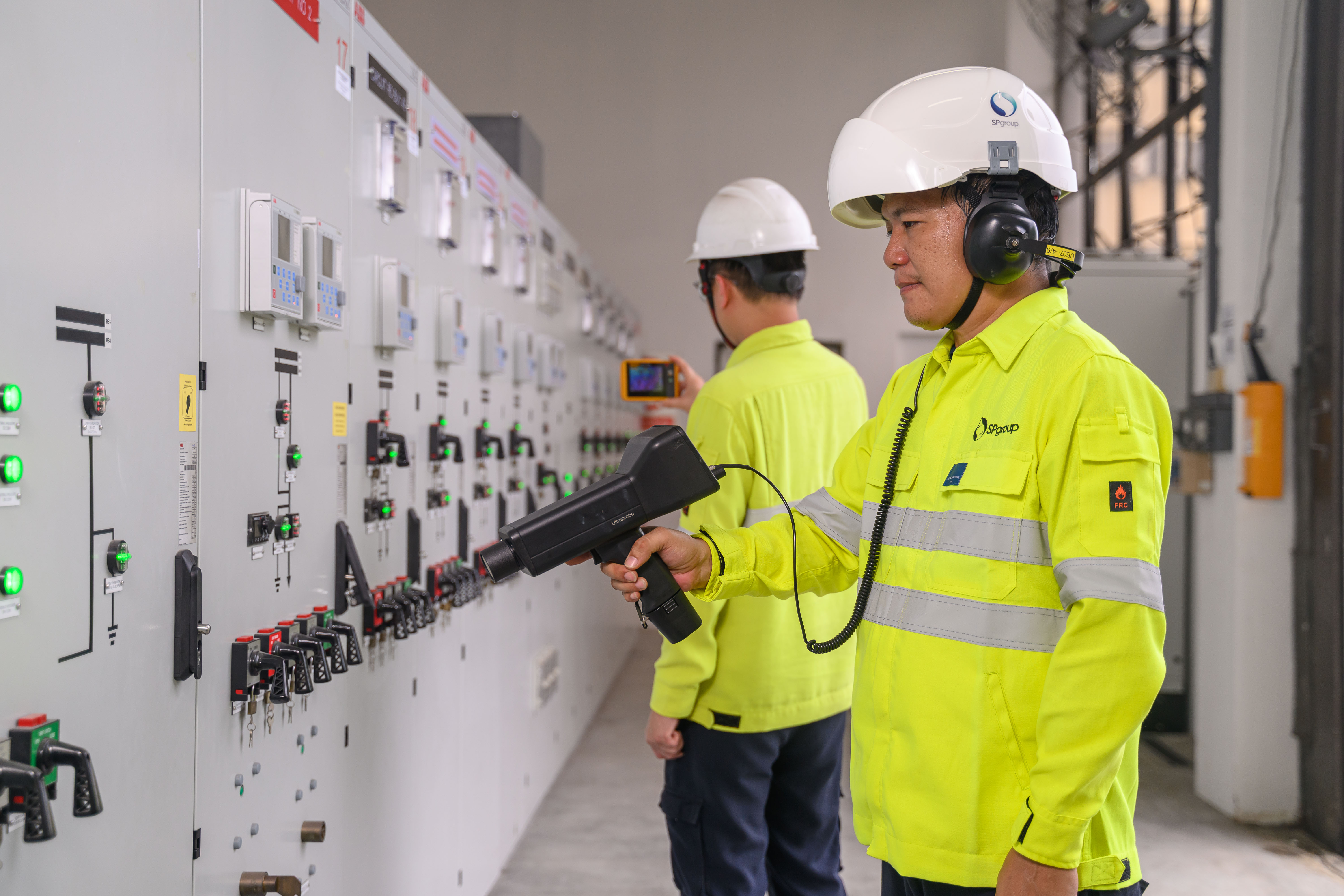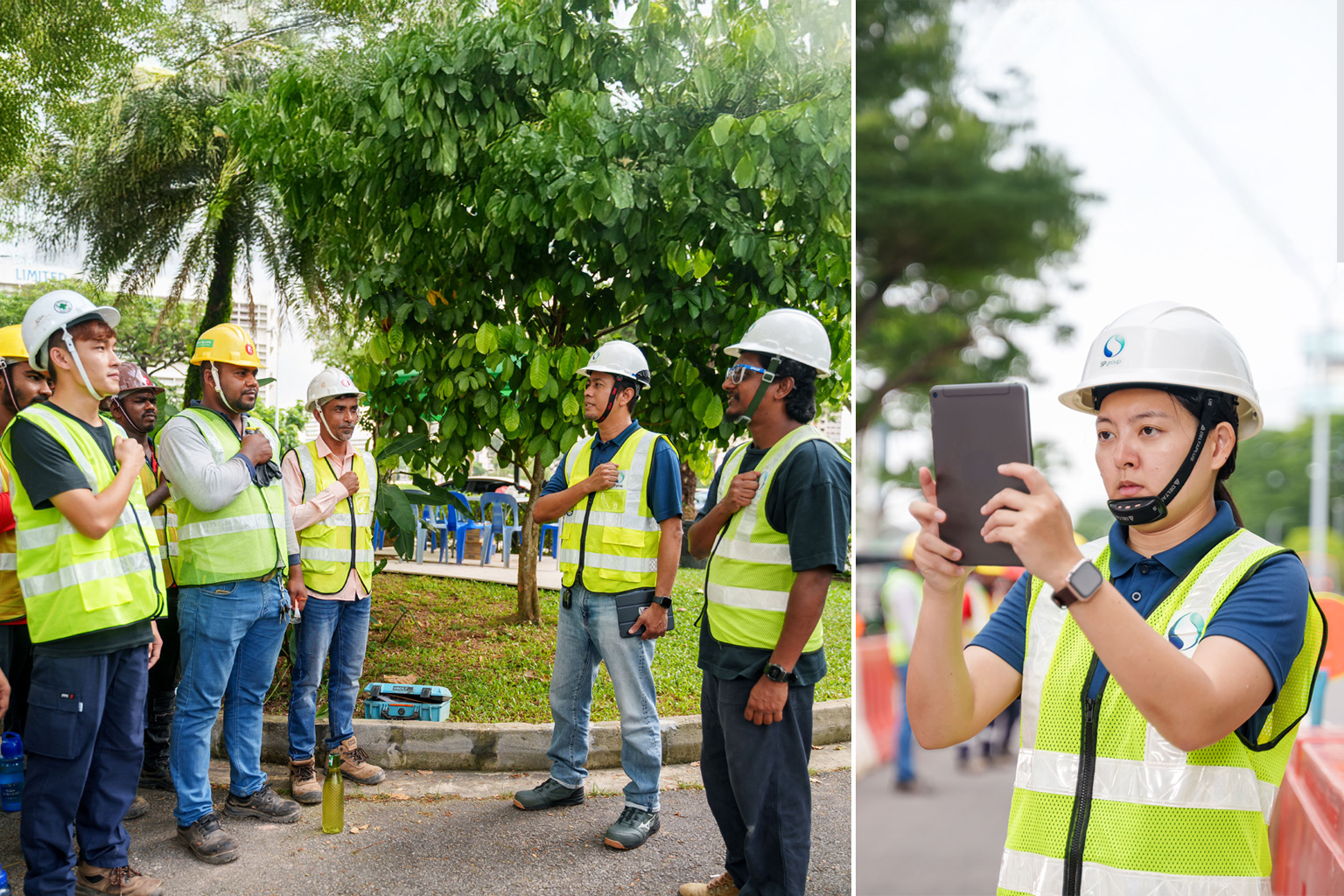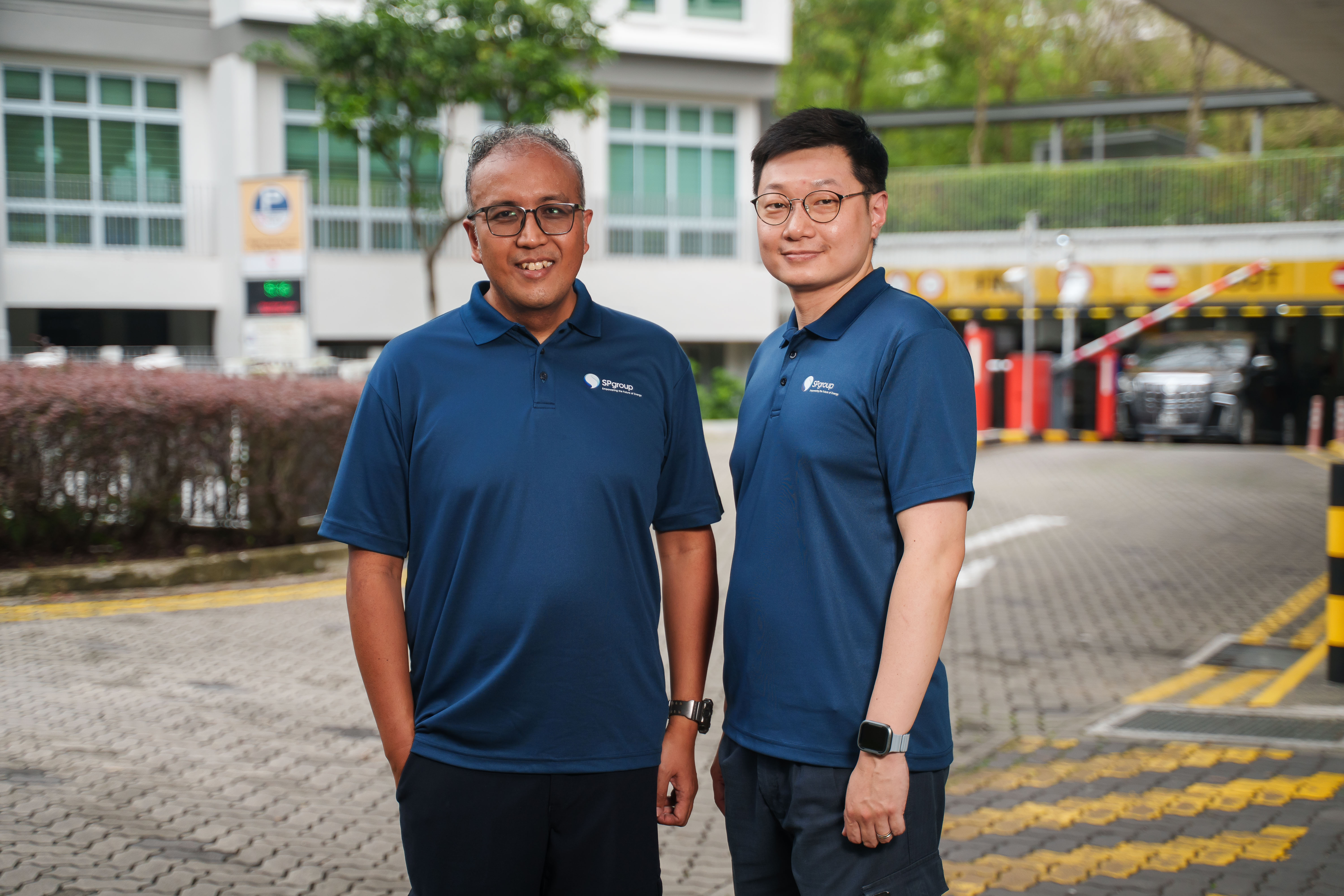Protecting Our Underground Network

When a patrol officer from SP Group’s Earthworks Surveillance & Patrolling (ESP) section pulled up at a Whampoa West construction worksite in November last year, what he did not expect to find was an excavated trench right over one of SP’s 230kV transmission cables – and a water pipe laid above it. The checks by ESP had uncovered the non-compliance of a contractor who was not following the approved plans they submitted to SP previously.
Beyond the works themselves, leaks, condensation or breaks in the water pipe could pose a threat to the high voltage electricity cable below, and cause a power outage.
SP’s critical electricity cables and gas pipes – networks spanning 11,500km and over 28,000km respectively – are buried underground. At the same time, across Singapore, there are always ongoing works for various construction projects.
“That is why we carefully manage and monitor all excavation works – it minimises the risk of an electricity disruption or a gas leak,” explained Principal Engineer, James Ou, who heads ESP and oversees a team of almost 60.

Mr Ou, who is 36 and studied electrical engineering, joined SP in 2008. He worked in electricity operations and maintenance before assuming his current role in November 2017. Now, he prevents problems instead of fixing them.
In the case mentioned, the contractor of another organisation had conducted unauthorised work. Timely intervention averted damage, but the site’s Registered Excavator Operator was still suspended from excavation work for three months. The Energy Market Authority also took action against the contractor.

The incident highlights the critical role SP’s compliance officers play in keeping Singapore’s electricity and gas supply humming – especially against its booming construction landscape.
Despite the acronym, the ESP team doesn’t rely on a sixth sense to warn them of danger. Instead they enforce stringent requirements, as well as rigorous and frequent checks on every worksite.
15 patrol officers in the team of close to 60 Earthworks Surveillance and Patrol Officers cover a total distance of 360,000km – or nine trips around the earth – each year. That’s an average of 135 worksites a single patroller visits each month, said Mr Ou. Checks are frequent – for sites close to gas pipes, checks are conducted daily. For transmission cables over 66kV, checks are conducted three times a week.
There are many bases to cover. All contractors need to submit a notice of commencement of earthworks (NCE) seven days before they are scheduled to begin. They are also briefed on precautions and mitigation measures onsite by ESP officers. SP is also consulted on high-risk earthwork sites to ensure nothing is missed. This minimises the risk of damage.
During site meetings conducted by ESP officers, all requirements are covered, and SP patrollers ensure they are followed. Senior officers like Mr Ou will also join patrols or attend briefings to ensure contractors get clear and complete guidance.

Most contractors do take compliance seriously, says Mr Ou. “Sometimes, it is subcontractors that just don’t know the procedures, or shift the location of their work, and it poses a risk,” he said.
The team’s diligent checks and contractors’ compliance with regulations minimises that risk. This protects both our critical infrastructure and the workers at these sites.
Getting the job done right requires a “high-trust” environment, and the same openness and teamwork demanded by sports, says Mr Ou, who plays football in an amateur league on weekends.
He also conducts monthly huddles with his team, and encourages all officers regardless of rank to speak freely if they have suggestions or spot anything amiss.
“I recognise it is important to have each other’s back when working on something critical, and to come together as a team.
“Everyone has a part to play and can add value.”
— 11 July 2019







